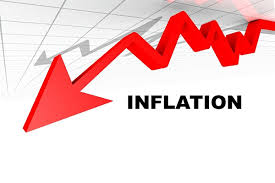Nigeria’s Consumer Price Index (CPI) which measures inflation said that Nigeria’s dropped further to 16.63% in September compared to 17.01% recorded in the previous month, Oyogist.com reports.
From the report released by the Nigeria Bureau of Statistics on Friday October 15, the new inflation rate is 0.38 lower than the rate recorded in August 2021 (17.01 percent).
Increases were recorded in all Classification of Individual Consumption According to Purpose (COICOP) divisions that yielded the Headline Index.
The report reads;
“On a month-on-month basis, the Headline Index increased by 1.15 per cent in September 2021, this is 0.13 per cent rate higher than the rate recorded in August 2021 (1.02) per cent.
“The percentage change in the average composite CPI for the 12-month period ending September 2021 over the average of the CPI for the previous 12-month period was 16.83 per cent, showing 0.23 per cent points from 16.60 per cent recorded in July 2021.
“The urban Inflation rate increased by 17.19 per cent (year-on-year) in September 2021 from 17.59 per cent recorded in August 2021, while the rural inflation rate increased by 16.08 per cent in September 2021 from 16.45 per cent in August 2021.
“On a month-on-month basis, the Urban Index rose by 1.21 per cent in September 2021, up by 0.15 the rate recorded in August 2021 (1.06), while the Rural Index also rose by 1.10 per cent in September 2021, up by 0.11 the rate that was recorded in August 2021 (0.99) per cent.”
In terms of non-farm produce, the highest increases were recorded in prices of gas, household textile, garments, motor car, game of chance, major household appliances whether electric or not, passenger transport by air, hospital services, other services in respect personal transport equipment, wine, clothing materials, other articles of clothing and clothing accessories, non-durable household goods.
In September 2021, All Items Inflation on year-on-year basis was highest in Kogi (20.82%), Gombe (19.09%) and Oyo (19.07%), while Yobe (14.96%), Edo (14.85%) and Kwara (13.70%) recorded the slowest rise in Headline Inflation (year-on-year)


